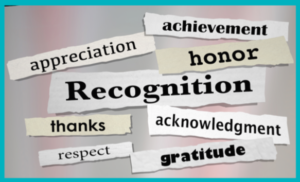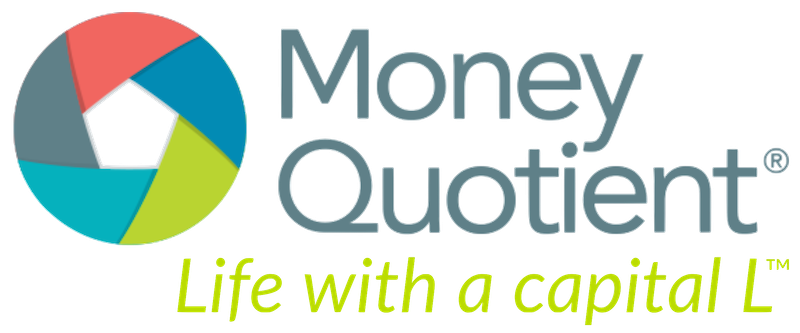 I was saddened to hear the news that Edward A. Jacobson, Ph.D.—my friend and colleague—passed away earlier this month. I will be forever grateful to him for his wise counsel and loyal support of the work we do at Money Quotient.
I was saddened to hear the news that Edward A. Jacobson, Ph.D.—my friend and colleague—passed away earlier this month. I will be forever grateful to him for his wise counsel and loyal support of the work we do at Money Quotient.
In addition, he served as a beacon for a new way of thinking and operating in the financial planning profession. Most importantly, he taught many of us about the power and possibility of Appreciative Inquiry—and that has changed us in a profound and positive way.
Ed had many gifts and many roles, but most knew him as a speaker, teacher, coach, and author. Appreciative Inquiry became his touchstone and the gift that he so willingly and ably shared with others. I can’t think of a more fitting tribute than to share, in Ed’s own words, what he had to say about his LIFE’S WORK.
Ed Jacobson served as a beacon for a new way of thinking and operating in the financial planning profession. Click To TweetWith permission from Ed’s wife and business partner, Jody Jacobson (jacobsoncoachingandconsulting.com), I am reprinting Chapter 1 from his book, Appreciative Moments. This excerpt is not only a succinct primer on the main principles of Appreciative Inquiry, but also a reflection Ed’s character and calling.
—Carol Anderson
“Welcome to My Life’s Work”
Appreciative Inquiry is a way of approaching each situation and each person (including oneself) with an appreciative eye and ear, a sense of awe and possibility, and an open heart. When I was introduced to AI in 1997, I knew I’d found a way of working and living that had great meaning and promise to me. In fact, at the end of the training, I wrote a note to myself: “If I don’t do this work, I won’t be true to myself.” That much I knew. What I didn’t know was that it would become my life’s work.
It took me three or four years to integrate Appreciative Inquiry deeply in my work. Since then, appreciation and open inquiry have become the centerpieces not only of my work, but of my entire life as well. This ongoing process is a journey, a continuing delight, and sometimes a daunting challenge. I have written this book as a way to guide you on such a path, to light the way … and perhaps to lighten the way as well.
From Appreciative Inquiry, I have learned that I function best when I’m operating from appreciation and possibility—and with openness to (a) seeing the best in each person, in each situation, in the wider world, and in myself; and to (b) building on that sense of possibility to create the best experiences, learning environments, and tangible outcomes I can. Of course, I’m not always at my best. I don’t always operate from possibility and appreciation. That’s why it’s called practice—because it takes a lot of it. And by practicing appreciation (and getting up again when I’ve fallen short on it), I’ve gleaned some valuable insights, which I have incorporated throughout Appreciative Moments.
And so I’ve discovered that my life’s work is about bringing appreciation, wonder, and possibility to each individual and group I’m with, and about exploring what that perspective would look like, how it might operate, and the riches it would bring in work and in life. Welcome to my life’s work.
Perhaps the best and quickest way to capture the richness and beauty of Appreciative Inquiry is to create short phrases to keep in mind or write on Post-it Notes™. Here are my top five:
- What is this person’s positive core? How can we bring it out more?
- What’s good here, and how can we get more of it?
- What is positive and life-affirming in this situation? How can we build on this foundation to achieve our goals?
- When are we at our best? How can we be at our best more often?
- What do we deeply wish for? How can we bring our best selves to the process of achieving this shared and heartfelt aspiration?
One of the foundational tools of Appreciative Inquiry is the appreciation question. This type of question is formulated in a positive way, and seeks to uncover and bring out high point experiences, strengths, successes, aspirations, and other positive aspects of one’s experience and strivings. For example, “How are you doing?” is not appreciative. “What’s been a high point in your day thus far?” is.
I invite you to consider the following appreciative question as a way of finding, or confirming, your own life’s work: how often can you say about your job, “Welcome to my life’s work”? Trust your immediate response. It contains more than a kernel of truth. For example, perhaps you heard yourself say, “Oh, about ten percent of the time,” “Gosh, it’s probably ninety percent,” “Well, every time I’m with a client, I know I’m welcoming that person to my life’s work,” or “That question makes me uncomfortable.” Any response is fine. Each one reveals something important about your life’s work.
A powerful way to use appreciative questions is to inquire about high point experiences. Let’s use some follow-up appreciative questions to learn more about such experiences.
Can you remember a time when you found yourself thinking or saying, “Yes! This is the work I was meant to do in the world”? What memory arises in your mind? (If you like, you can write down your answer.) If that question doesn’t elicit a memory, consider these two alternative questions:
- Can you remember a time when you felt totally immersed in and excited by your work?
- Can you recall a time when you used your gifts to make a difference—a difference that truly mattered to yourself or to someone else?
For either of those questions, here are some details to consider:
- What was the situation
- What challenges did you face?
- What gifts did you use?
- Who else was involved, and what did that person do?
- How did you feel in that situation? (Don’t gloss over this one. It’s centrally important.)
- How did the situation turn out?
- What important lessons did you learn?
- And the most important question to ask:
- What would it take to make this your life’s work?
If, after reading this chapter and living with these questions, (a) you feel confirmed in the choices you’ve made regarding your work life, and/or (b) you’re gaining insights about how you could create more experiences of that type for yourself, that’s wonderful. Alternatively, if (c) you’ve become uncomfortable about your answers, you’ve been paying attention and are equally to be congratulated. Self-awareness is always the first step on our journey to becoming what we might become.
Don’t rush away from the discomfort. Live with question of what has produced it, what it may be telling you, and what your life is asking of you. The answers can guide you to your life’s work. Don’t rush to find the right answers or to dispel the discomfort or distress you might be feeling. Those difficult emotions may be signs that your life’s work is calling you. You owe it to yourself to listen, and to follow.
Practice
In his book "Callings: Finding and Following an Authentic Life", Gregg Levoy defines a calling as being one-half of a conversation: a call that demands a response. This chapter presents the following questions to guide you in identifying your life’s work. This week, let those questions course through you and call to you:
- How often can I honestly say about the work I do, “Welcome to my life’s work”?
- Can I remember a time when I felt totally immersed n and excited about my work?
- Can I recall a time when I used my gifts to make a difference—a difference that mattered to myself or to someone else?
Do your answers reveal something that you are called to do in the world? That you are called to be in the world? If so, take the first step (or the next step) toward it. Journal about it, talk about it with someone you trust, do research about it in books and magazines, interview someone who’s following a similar calling, or take another step that will move you forward. After that, let the next step reveal itself to you. Trust the process.
Edward A Jacobson
Chapter 1, "Appreciative Moments"
Note: This excerpt is copyrighted and reprinted by permission of Jody Jacobson, jacobsoncoachingandconsulting.com
